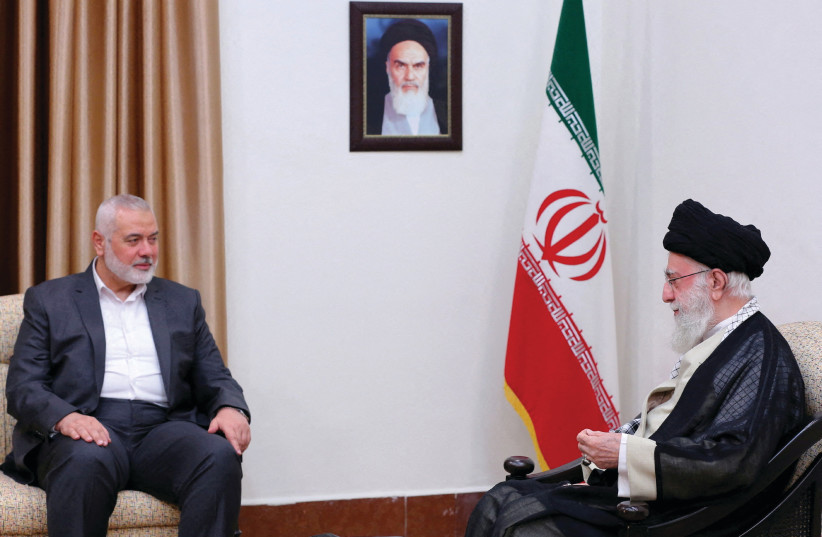Meta announced it removed Facebook and Instagram accounts run by the office of Iranian Supreme Leader Ayatollah Ali Khamenei, according to Radio Free Europe/Radio Liberty (RFE/RL) on Thursday.
Meta Spokesperson told RFE/RL “We have removed these accounts for repeatedly violating our Dangerous Organizations & Individuals policy.”
According to the Meta website, "the Dangerous Organizations and Individuals (DOI) policy addresses some of the most serious threats to the safety of our users and our platform. We do not allow organizations or individuals that proclaim a violent or hateful mission or are engaged in violence to have a presence on Meta."
The last policy update as of January 23, 2024, does not "allow content that glorifies, supports, or represents events that Meta designates as violating violent events. For example, terrorist attacks."

In addition, the policy includes organizations that have been identified by the US government as "Foreign Terrorist Organizations" and "Specially Designated Global Terrorists."
Links between Hamas and Iran
While Meta did not mention Hamas overtly, there is a strong link between the terrorist organization and the Iranian regime.
Following the October 7 massacre, Khamenei voiced his praise of the terror group, stating in a speech, “We kiss the foreheads and arms of those who planned the attack on the Zionist regime."
In late December, General Ramezan Sharif, the Spokesperson of the Islamic Revolutionary Guard Corps (IRGC), took credit for the massacre, stating these were "acts of revenge" for the killing of the "Quds Force commander Qassem Soleimani by the US and the Zionists,” according to Iran’s state-sponsored news agency ISNA.
Sharif retracted his claim after it was met with severe criticism.
In an interview with NBC earlier this week, Iranian ambassador to the UN, Amir Saeid Iravani, said referring to the Palestinians, "We're sending arms, we're training them and empowering them."
Ohad Merlin contributed to this article.
